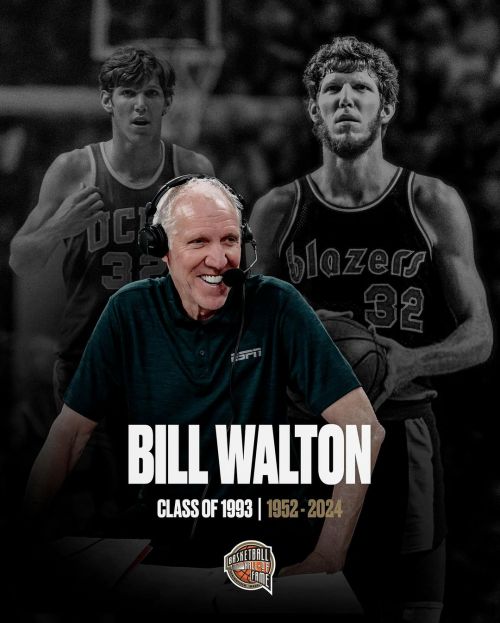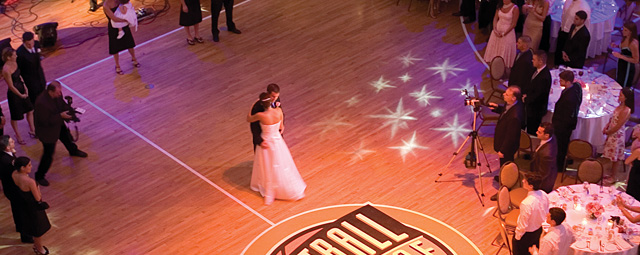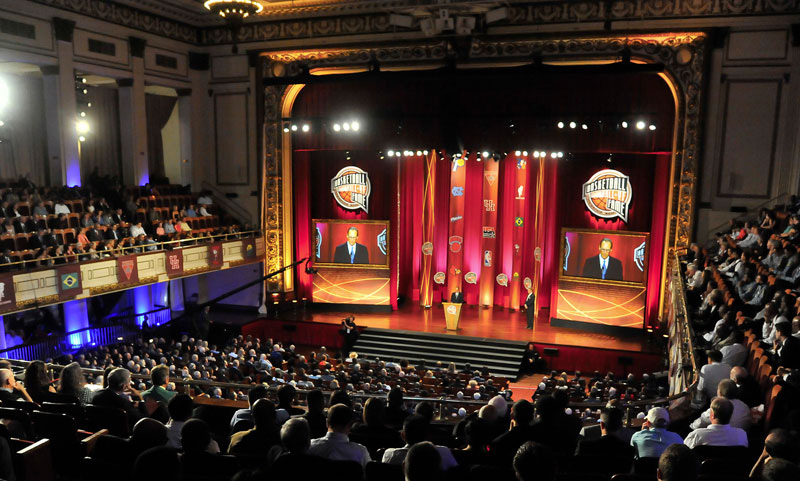In Memory
Bill Walton
1952-2024Class of 1993
Raconteur, quipster, inveterate goofball, world’s tallest Deadhead … Bill Walton was all those things and more in the second act of his amazing life. In the first act, for anyone who may have missed it, he was one of the most dominant centers to play the sport of basketball.
Walton died on May 27 after a long battle with cancer, the NBA announced on behalf of Walton’s family. The 1993 Naismith Basketball Hall of Fame enshrinee and two-time NCAA and NBA champion was 71 and leaves behind a multilayered legacy as an award-winning player and broadcaster who was unabashed in his zeal for life and adventure off the court.
As mounting salaries gradually made pro athletes’ lives seem more and more distant from those of the regular folks who watched them play - and way before social media made it easy to cultivate a public persona - Walton was a true man of the people, just as likely to be seen hanging out with fans at a concert, protest or hockey game as catching the ball in the low post and banking in a one-hander.
“What I will remember most about him was his zest for life,” NBA Commissioner Adam Silver said in a statement. “I envied his boundless energy and admired the time he took with every person he encountered.”
On the court, success didn’t so much follow Walton as take a long ride on the 6-foot-11 redhead’s considerable coattails. Beginning with his high school team at Helix High in La Mesa, Calif., and through his first three years at UCLA, he played in 142 consecutive winning games. After an undefeated season on the freshmen team, Walton led the Bruins to consecutive 30-0 seasons and national titles in 1972 and 1973 that gave UCLA seven straight championships under legendary coach John Wooden, a feat unlikely to ever be duplicated.
Walton’s performance in the 1973 title win over Memphis State and star forward Larry Kenon still ranks as the greatest in championship game history, as he scored 44 points on an eye-popping 21-for-22 from the field in the Bruins’ 87-66 victory.
UCLA’s record 88-game winning streak was halted the following season by a Notre Dame team featuring future NBA players John Shumate, Adrian Dantley and Gary Brokaw. The Bruins fell in the Final Four to David Thompson-led North Carolina State 80-77 in double overtime in what is considered one of the greatest NCAA Tournament games ever played. Walton finished his college career as a three-time college player of the year, averaging 20 points, 15 rebounds and five assists.
In a touching gesture to his former coach, Walton led an effort to raise funds for a tribute bench in Wooden’s honor that was installed in 2022 in the Hall of Fame’s Coaches’ Circle, in the pavilion outside the museum.
Walton’s pro career was dogged by a series of injuries but featured a memorable NBA title run in 1977 when the Trail Blazers went down 2-0 to the Philadelphia 76ers before winning four straight games. Walton had 20 points and 23 rebounds in the clincher and was named finals MVP after averaging 18 points, 19 rebounds, five assists and three blocks.
“I would pay to see Bill Walton,” Trail Blazers executive Stu Inman recounted in David Halberstam’s classic 1981 book Breaks of the Game. “He brought a special tempo to the game, there was a rhythm to his game and it was always the right rhythm. Most of all, his effect on his teammates. As long as he was there, they all knew they would be in every game and they controlled their own egos. With him, they always knew they could do it as a team.”
After earning a second NBA title - and the NBA’s Sixth Man of the Year award - with the Boston Celtics in 1985-86, Walton played part of one more season before retiring.
The end of his playing career certainly didn’t diminish Walton’s celebrity. He overcame a lifelong stuttering problem to become a celebrated broadcaster for CBS, NBC and ABC/ESPN as well as the Los Angeles Clippers, Sacramento Kings and the Pac-12 Network. After news of his death, legions of fans took to social media to post their favorite clips of Walton’s often hilarious and offbeat commentary.
At his Hall of Fame enshrinement speech in 1993, Walton thanked his teammates “who made me a much better basketball player than I could ever have become myself” and paused to give special thanks to Wooden and former Boston Celtics coach Red Auerbach - “two people who saw basketball in a different way than most others; who saw basketball as a thing of beauty, a thing of teamwork, a thing of style, a thing of success, and as a celebration, of years, of hours, a lifetime of commitment.”




